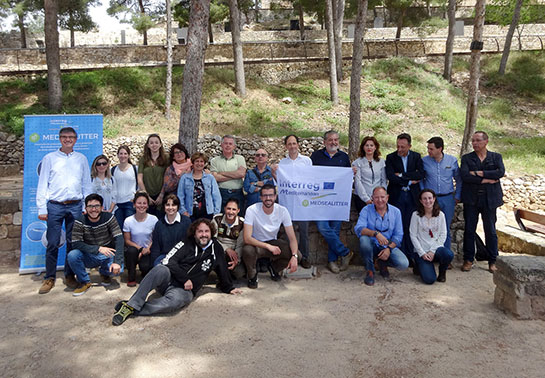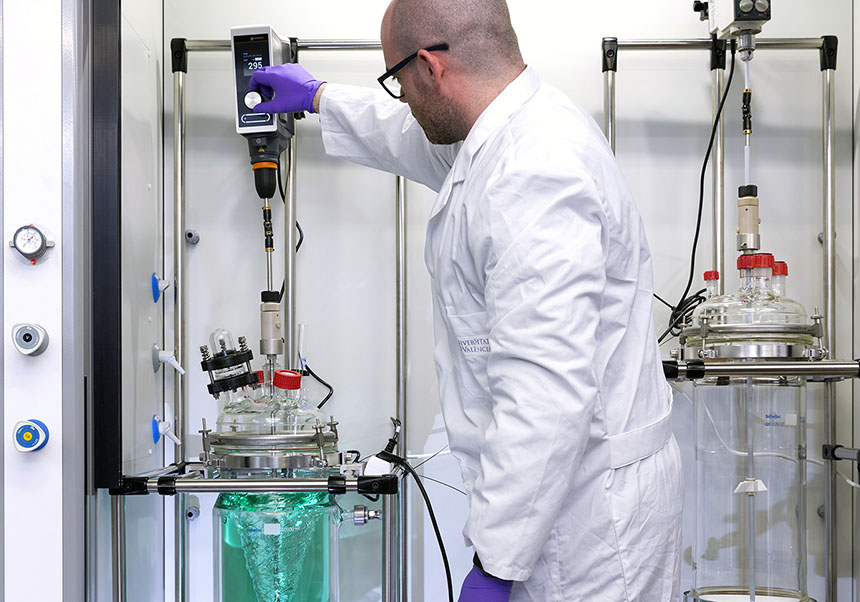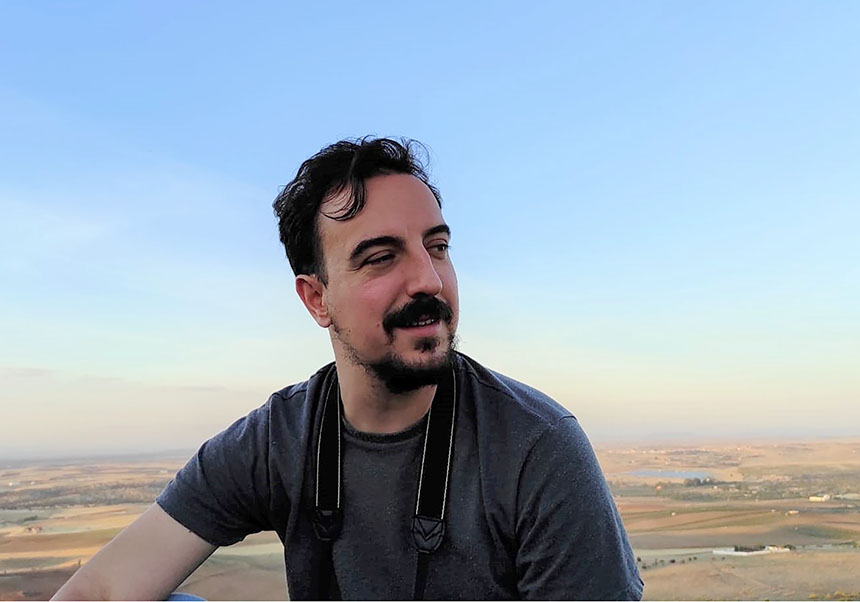The Universitat presents a standardized protocol to seek solutions to the garbage problem in the Mediterranean
- Science Park
- May 9th, 2019

Managers, researchers and representatives of fishermen's associations, users of the sea and NGOs of the Universitat de València and the Universitat de Barcelona have met this Thursday in Denia (Alicante) in order to present a common protocol to address the problem of marine litter pollution in the Mediterranean basin. The document arises from the European project MEDSEALITTER, in which 11 partners from 4 countries participate.
The Mediterranean Sea is one of the hot spots of biodiversity in the world, but it is also one of the most polluted seas. In it, more than 260 species ingest marine waste, i.e. plastic waste, monofilament lines, rubber and aluminium foil. The problem particularly affects fish, cetaceans and sea turtles, animals in whose digestive tracts there are micro and macro plastic wastes accidentally swallowed.
The European Marine Strategy Framework Directive considers marine waste to be one of the most serious pollutants in the Mediterranean. The Barcelona Convention, signed by different countries, including Spain, also underlines the need to control marine pollution in order to drastically reduce the risk to Mediterranean biodiversity.
The Cavanilles Institute of Biodeiversity and Evolutionary Biology of the Universitat de València and the Biodiversity Research Institute of the Universitat de Barcelona participate in Interreg MEDSEALITTER, a European project for the sampling and quantification of marine litter in the Mediterranean, which aims to develop, test and apply efficient and cost-effective protocols for analysing and managing the impact of waste on marine biodiversity. This is a pilot project, implemented in four countries -Italy, France, Spain and Greece-, in which the EcoOcean Institute and the Ecole Pratique des Hautes Etudes (CNRS), for France, the Cinque Terre National Park and Marine Protected Area, the Capo Carbonara Marine Reserve, the Egadi Islands Marine Reserve, Legambiente and the Higher Institute for Environmental Protection and Research, for Italy, and the Marine Research Centre and MEDASSET (Mediterranean Association to Save the Sea Turtles), for Greece, also participate.
The results presented today in Denia translate into a common standardized protocol aimed at strengthening the effectiveness of management plans in Marine Protected Areas, through the coordination of conservation measures between adjacent marine areas, and promoting effective solutions to the impact of marine debris on the biodiversity of the Mediterranean basin. "What this protocol seeks is to reach common legislation to tackle the problem and reach strategic agreements on spatial-temporal observation, garbage measurement and control of the impact on marine fauna," says Morgana Vighi, from the Universitat de Barcelona.
Juan Antonio Raga, from the Universitat de València, insists on the importance of having a common protocol for all Mediterranean countries that is applied simultaneously for the analysis and control of micro and macroplastics in the sea. "The fact of incorporating common methodologies for very different marine areas will establish a common language for the study and will produce an important volume of data that will allow validating the actions proposed by the European Union in its marine waste management policy", concludes Raga.
More information:
File in: Ciencias de la Vida















